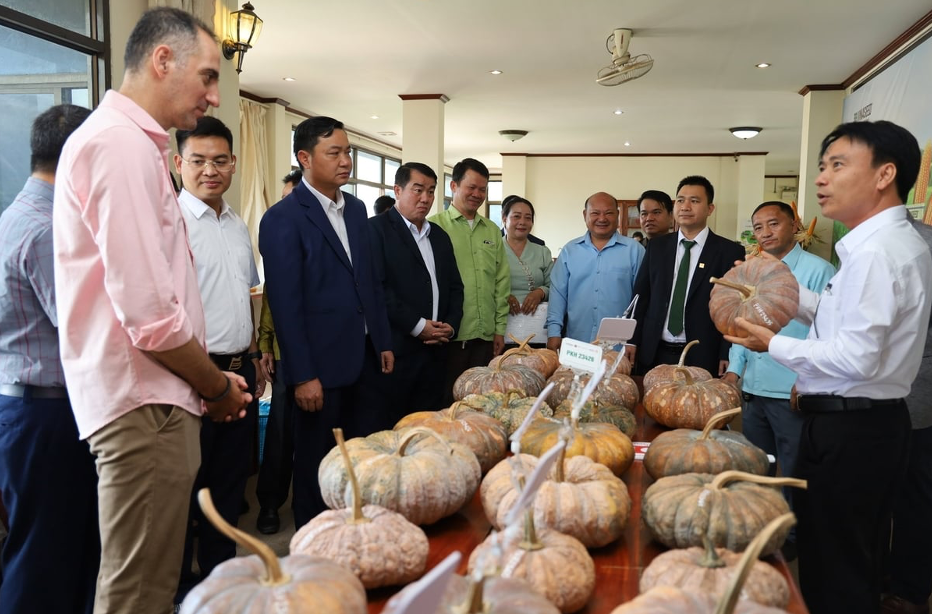Vietnam’s Vinaseed and the World Vegetable Center have unveiled promising new pumpkin hybrids in Laos, part of a broader partnership to strengthen agricultural cooperation and prepare Laos to join UPOV.
On September 10, Vietnam National Seed Group (Vinaseed), a member of The PAN Group, partnered with the World Vegetable Center (WorldVeg) and other organizations to host an international workshop in Oudomxay Province, Laos.
A key highlight of the workshop was the announcement of trial results for 14 new F1 hybrid pumpkin varieties developed jointly by WorldVeg and Vinaseed in Vietnam and Laos during 2025. The trials were conducted at the Vinaseed Research Institute in Hung Yen province, Vietnam, and in Muong La district, Oudomxay province, Laos, using a randomized complete block design with three replications.
 Tropical pumpkin varieties feature outstanding traits such as high yield, rich beta-carotene content, and strong virus resistance. Photo: PAN Group.
Tropical pumpkin varieties feature outstanding traits such as high yield, rich beta-carotene content, and strong virus resistance. Photo: PAN Group.The results revealed several outstanding varieties with superior yields and strong resistance to viral diseases. All tested varieties demonstrated resilience against yellow mosaic virus, a major challenge for pumpkin production in Southeast Asia.
Notably, the pumpkin line PKH426 was identified as highly promising, with an average weight of 3.5-4kg, a yield of 25-27 tons per hectare, deep yellow flesh, and a sweet, nutty flavor. The PKH618 and PKH435 lines also received high marks for their yield and virus resistance.
During the workshop, experts shared experiences in building a Plant Variety Protection (PVP) system and outlined the process for joining the International Union for the Protection of New Varieties of Plants (UPOV). Vietnam officially became a UPOV member in December 2006. Nearly two decades later, the adoption of the UPOV system has yielded impressive results.
Specifically, the PVP system has encouraged breeders to invest in research, leading to the creation of many new high-yield, high-quality, and climate-resilient varieties, thereby improving the overall quality of crop seeds. According to data from Vinaseed, farmers planting protected rice varieties earn an average income 45% higher than those using non-protected varieties, demonstrating a significant increase in benefits.
On the innovation front, many private Vietnamese enterprises have developed modern breeding research systems to enhance their regional competitiveness.
As part of the event, Vinaseed and Phu Tho Udomxay Company, a leading seed distributor in Laos, signed a strategic cooperation agreement. The two parties will collaborate on building demonstration models and will jointly develop and commercialize promising F1 hybrid pumpkin varieties in the Laotian market, with plans to expand to other staple crops like rice and waxy corn.